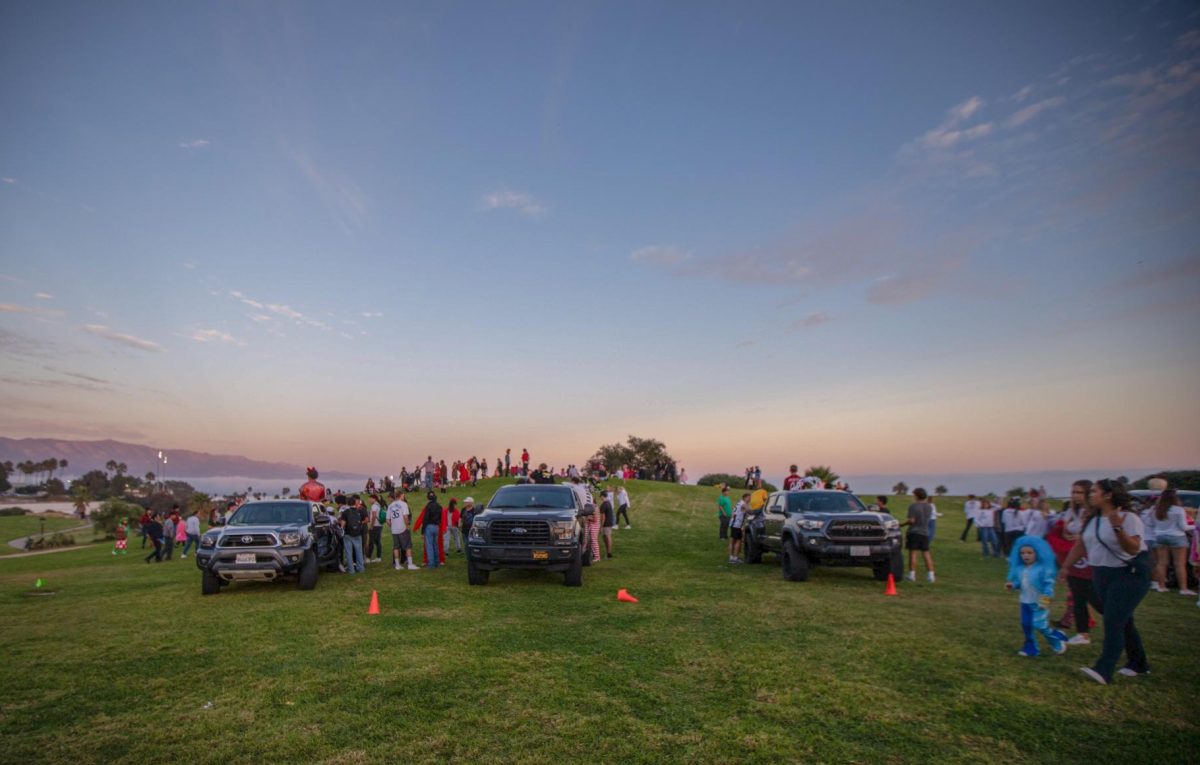Time brings human advancement, but what has progress cost?
Americans can obtain anything that money buys. One fellow bought his way into the Russian space program. The upwardly agile have high-speed Internet connections, sleek cars and advanced medical care.
Americans work hard and fast to access the latest gizmos, widgets and health insurance. Too busy to cook? Grab a technologically superior and nutritionally inferior designer food. No cooking, cleaning or candles on the table, please, just fill the belly.
Reducing dine time frees a few more minutes to work or shop. An Internet shopper can seize a deal at 2 a.m. while wearing pajamas.
Storehouse personnel ship books, clothes and cell phones without ever seeing those red pajamas. Meanwhile, human interaction dissipates into the ethers.
At least communication is not dead. Cell phones grant constant connections to family, friends and emergency personnel, but they bite the wallet.
Let’s pause there. My first cell phone came neatly wrapped in Christmas paper last December. Oh joy! Now I too could be available electronically “in case of emergency.”
But emergency quickly gave in to urgency. Urgency gave it up to convenience. And convenience gave way to inconsideration. My electronic friend went off during someone’s speech. I thought I stepped far enough away to answer it discreetly.
“Can you hear me now?” I asked my husband.
“Take it outside,” a hostess said.
Red-faced, I slunk out of the building to hear directions to our important appointment. He could have told me that morning, but that would have interrupted our usual scurry.
Okay, that was rude. Has our society lost the qualities of gracious living and courtesy? Courtesy means, according to Webster’s Collegiate Dictionary, 2b: consideration, cooperation, and generosity (as in a gift or privilege).
Courtesy could mean opening a door for somebody. That still happens. Occasionally shoppers motion to someone with three items to step in front of their full baskets. So courtesy isn’t defunct.
Paying attention is not just courteous. It’s safer.
Consider this scenario. A pedestrian steps off a curb to cross a street, Cingular cupped to an ear. Half his attention is far away in conversation. A driver, holding a Nokia, could have her mind on picking up the kids on time.
The driver might refocus and avert a collision. If not, four people could be culpable for a mangled pedestrian. That’s two people for each phone call.
The New England Journal of Medicine posted an Internet article, “Association Between Cellular-Telephone Calls and Motor Vehicle Collisions” by Dr. Donald A. Redelmeier and Dr. Robert J. Tibshirani. The article concluded that using a cell phone while driving quadrupled the risk of collision. It also surmised that hands-free units are not safer than hand-held units.
There’s more than one kind of collision in life, and more distractions than phone calls.
In the frenzy of squeezing three lifetimes into one, I experienced chest pains. A zillion tests and a lot of insurance dollars paid for a verdict. My heart is fine, as a ticker. Stress could be the culprit.
Peace is priceless. Courtesy to oneself is as important as courtesy to others. Both plunge into the chasm of “never enough time, money or accomplishment.” Courtesy, in the light of acquisition, is an endangered art form.
My medical emergency was a wake-up call, thank God, not a funeral call. What will it cost to give up the thrill of hurried living? I don’t know yet, but I’m willing to turn in my superwoman cape to find out. How much would it fetch on Ebay?
-Diane Conwell is a Journalism 103 student.







